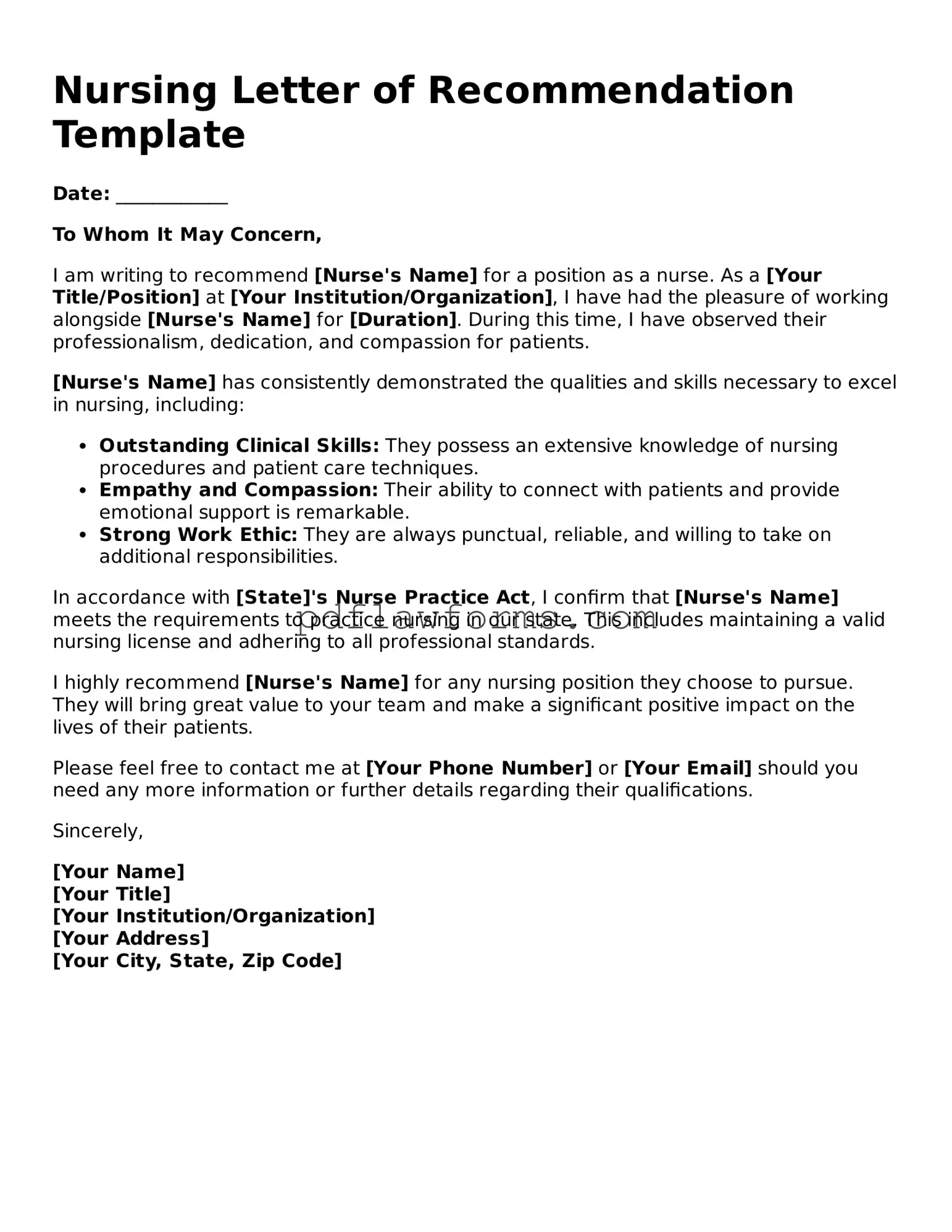Official Nursing Letter of Recommendation Form
The Nursing Letter of Recommendation form is a crucial document that supports a nursing candidate's application by providing insights into their skills, character, and professional experience. This form is often completed by supervisors, instructors, or colleagues who can attest to the applicant's qualifications and dedication to the nursing profession. Completing this form can significantly enhance a candidate's chances of securing a position in a competitive field.
To contribute to a nursing candidate's success, please fill out the form by clicking the button below.
Make My Document Online

Official Nursing Letter of Recommendation Form
Make My Document Online
You’re halfway through — finish the form
Edit and complete Nursing Letter of Recommendation online, then download your file.
Make My Document Online
or
⇩ Nursing Letter of Recommendation PDF
